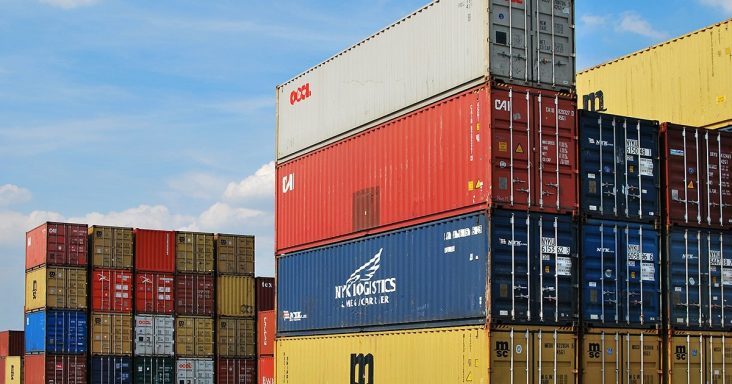State trade groups, federal legislators tout new ocean carrier regulations
by June 16, 2022 5:40 pm 746 views

Federal legislators and industry organization leaders from Arkansas touted a new law that’s expected to benefit U.S. exporters and ease supply chain issues, The U.S. Senate approved the act in March, and the House of Representatives approved it June 13.
According to a Thursday (June 16) news release, U.S. Sen. John Boozman, R-Ark., U.S. Rep. Steve Womack, R-Rogers, and U.S. Rep. Rick Crawford, R-Jonesboro, praised the bipartisan, bicameral Ocean Shipping Reform Act they championed and President Joe Biden signed into law.
The law updates federal regulations for the global shipping industry and gives the Federal Maritime Commission (FMC) greater rulemaking authority to regulate harmful practices by carriers, the release shows.
“Too many families and small businesses are experiencing the strain of empty shelves and wallets,” Womack said. “I’m proud to help deliver real action to combat inflation and supply chain disruptions. With today’s signing, we are supporting a fast flow of goods and Arkansas producers, especially our hardworking farmers and ranchers. Increasing market access and economic opportunity for Natural State and American-made products is essential to easing backlogs and alleviating price burdens on consumers.”
According to the release, the law will require ocean carriers to certify that late fees, or detention and demurrage charges, comply with federal regulations or face penalties. It also will shift the burden of proof regarding the charges from the invoiced party to the ocean carrier. And, it will prohibit ocean carriers from unreasonably declining shipping opportunities for U.S. exports as determined by the FMC.
“The Ocean Shipping Reform Act is a positive step forward for American agriculture,” said Rich Hillman, president of Arkansas Farm Bureau. “We export a large amount of our crops and products and depend heavily on ocean shipping to deliver these goods to market. We applaud the Arkansas Congressional Delegation for getting this done for Arkansas farm families who produce the best food and fiber in the world.”
Shannon Newton, president of the Arkansas Trucking Association, also praised federal legislators from Arkansas on their support for the bill, and looks “forward to improved freight flows at the ports so we can continue to deliver goods where they are needed most.” Kevin McGilton, vice president of government affairs for Riceland Foods, said the law “will give the FMC more tools to ensure our exports flow efficiently to our customers at fair rates.”
Boozman explained the benefits of the law on the supply chain.
“Arkansas exporters must have dependable and reliable transportation to move their goods to markets all across the world,” Boozman said. “Regular export capability is particularly vital to the state’s agriculture industry. As we continue to face skyrocketing inflation, signing this legislation into law is a critical step to helping relieve the supply chain crisis that is exacerbating high prices.”
The act was introduced by Reps. Dusty Johnson, R-S.D., John Garamendi, D-Calif., and Sens. John Thune, R-S.D., and Amy Klobuchar, D-Minn.
Organizations supporting the bill included the American Association of Port Authorities, the National Industrial Transportation League, the National Retail Federation, the Agricultural Transportation Coalition and the American Trucking Associations.
Other aspects of the law include requiring ocean carriers to report annually to the FMC on total import and export tonnage and 20-foot equivalent units (loaded/empty) per vessel that makes port in the United States and for the FMC to self-initiate investigations of ocean carrier’s business practices and apply enforcement measures.
